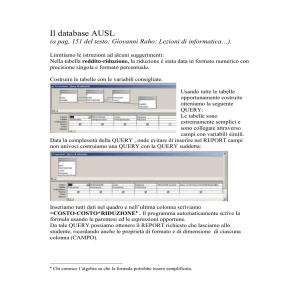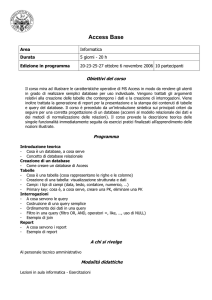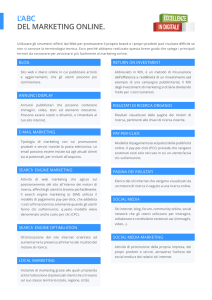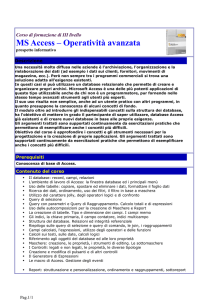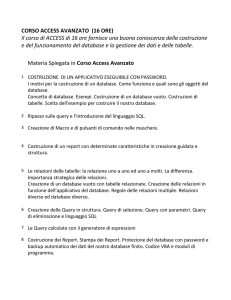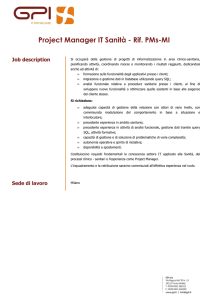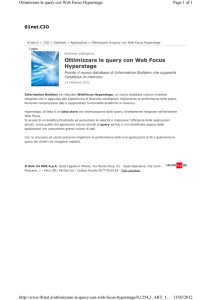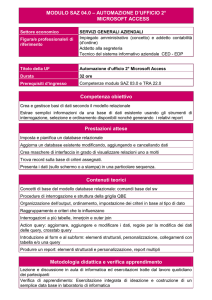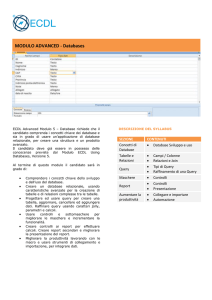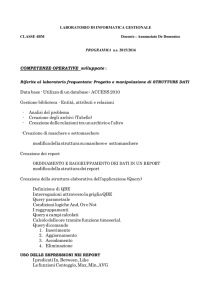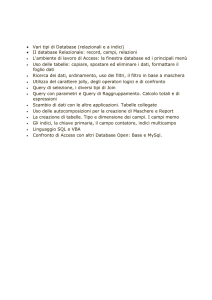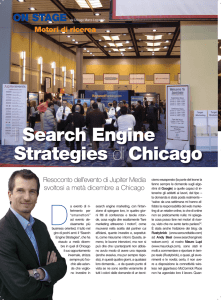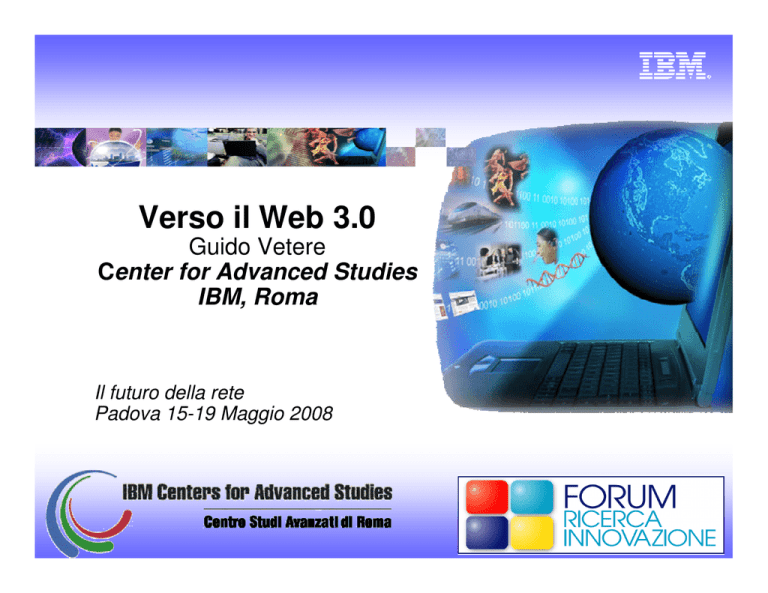
Verso il Web 3.0
Guido Vetere
Center for Advanced Studies
IBM, Roma
Il futuro della rete
Padova 15-19 Maggio 2008
Web 3.0 - Motivazioni
“it would be nice if computers could do more on the Web” (Ora Lassila –
Nokia)
“We deal every day with people who try to sell someone Viagra when
that’s not what they are looking for.” (Peter Norvig - Google)
Computers must “understand” more: not human concept of
“understanding”, just useful machine processing (Chris Welty - IBM)
Web 3.0 - Definizioni
Web 1 > search engine > semantica negli utenti
Web 2 > mash up > semantica nei sistemi
Web 3 > semantic web > semantica nei dati
– Ubiquità del dato
– Ubiquità del ragionamento
– Funzionalità distribuite
Web 3.0 - Stato dell’Arte
Applicazioni Web 3.0
– Basi di conoscenza strutturata
– Scarsa interoperabilità
10 Web 3.0 applications to watch (www.readwriteweb.com)
Freebase - is a database that has all kinds of
data in it. Anyone can enter new data.
Powerset - is a natural language search
engine which helps make a semantic
database
Twine - automatically learns about you and
your interests as you populate it with
content
SmartBlue - works by understanding specific
types of information and wrapping them with
additional data
Hakia - attempts to analyze the concept of a
search query, in particular by doing
sentence analysis.
Talis – a platform that enables developers to
create apps to share, remix and re-use data
TrueKnowledge - combines natural language
analysis, an internal knowledge base and
external databases to offer immediate
answers to various questions
Tripit - is an app that manages your travel
planning
Clear Forest - enables you to "identify the
people, companies, organizations,
geographies and products on the page you
are viewing“
Spock - is a people search engine
Web 3.0 – Problemi aperti
Ubiquità dei dati
– Forma
Web 3.0 Application
Query Knowledge
Answering Acquisition
• Espressività / Computabilità
• Standard sintattici
Reasoning
Knowledge
Base
– Contenuto
• Ontologia
– Spazio, tempo, oggetti, eventi
• Ideologia
– Astrazioni, linguaggio
Ubiquità del ragionamento
– Mapping semantico > teoria del
significato
– Epistéme / Doxa
Language
Processing
Web 3.0 Application
Query Knowledge
Answering Acquisition
Reasoning
Language
Processing
Knowledge
Base
Web 3.0 Application
Query Knowledge
Answering Acquisition
Language
Reasoning Processing
Knowledge
Base
Web 3.0 – Conclusioni
Il Web 3.0 (semantico) è una rete di sistemi che ragionano su dati
interoperabili, realizzando in modo distribuito nuove funzionalità
Nonostante i progressi nella rappresentazione dei dati e nel
ragionamento automatico, l’interoperabilità è ancora lontana
Manca una chiara distinzione tra cosa può essere effettivamente
standardizzato (ontologia) e cosa no (ideologia)
Infine, l’integrazione dei dati ha un limite nella qualità / relatività
dei contenuti informativi

